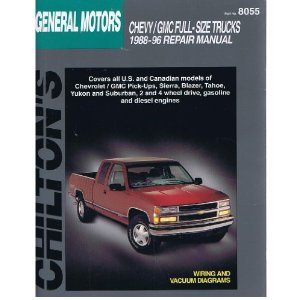 I've recently discovered my new favourite genre. Books… about books. My most recent find is the one that made me realize how very much I love reading this type of story. In Robin Wasserman's The Book of Blood and Shadow, the Voynich Manuscript is the Book, but a group of old letters are the main character. Wasserman's book has it all—intrigue, academia, mystery, romance, and murder most foul. And to top it off, this one is written for teens, so you know it moves along at a good pace. Plenty of books for adults feature books, too. A Discovery of Witches by Deborah Harkness had me at so many levels – not only does it feature an antique and mysterious book, it also has a vampire in it. And so does The Historian by Elizabeth Kostova. Bram Stoker's Dracula plays an important role in this book. For those of you who like your books a bit dark and slightly racy, there's Karen Marie Moning's "Fever" which starts with Darkfever. A very evil (and elusive) book is at the center if this addictive series (and there are vampires and bad faeries, too). Books are the focus of so many books, and often bookstores are the setting. The 'Fever' series features a lovely bookstore in Dublin; Diane Setterfield's The Thirteenth Tale starts off in a bookstore (no vampires). Books make the best gifts, as Jane Johnson's The Tenth Gift shows us. And if you've ever wanted to live inside a book, ask Thursday Next what it is like. Jasper Fforde has written a wonderful set of books featuring Miss Next, a feisty literary detective who must fix the plot in The Eyre Affair, Lost in a Good Book, The Well of Lost Plots, and others.
I've recently discovered my new favourite genre. Books… about books. My most recent find is the one that made me realize how very much I love reading this type of story. In Robin Wasserman's The Book of Blood and Shadow, the Voynich Manuscript is the Book, but a group of old letters are the main character. Wasserman's book has it all—intrigue, academia, mystery, romance, and murder most foul. And to top it off, this one is written for teens, so you know it moves along at a good pace. Plenty of books for adults feature books, too. A Discovery of Witches by Deborah Harkness had me at so many levels – not only does it feature an antique and mysterious book, it also has a vampire in it. And so does The Historian by Elizabeth Kostova. Bram Stoker's Dracula plays an important role in this book. For those of you who like your books a bit dark and slightly racy, there's Karen Marie Moning's "Fever" which starts with Darkfever. A very evil (and elusive) book is at the center if this addictive series (and there are vampires and bad faeries, too). Books are the focus of so many books, and often bookstores are the setting. The 'Fever' series features a lovely bookstore in Dublin; Diane Setterfield's The Thirteenth Tale starts off in a bookstore (no vampires). Books make the best gifts, as Jane Johnson's The Tenth Gift shows us. And if you've ever wanted to live inside a book, ask Thursday Next what it is like. Jasper Fforde has written a wonderful set of books featuring Miss Next, a feisty literary detective who must fix the plot in The Eyre Affair, Lost in a Good Book, The Well of Lost Plots, and others.
There are several ' Book' books written for younger readers (but note: just because they were written for younger readers doesn't mean adults can't enjoy them as well). In The Emerald Atlas by John Stephens, a magical book is at the centre of the adventure. Even Harry Potter gets in on the action in Harry Potter and the Chamber of Secrets, when Ginny is possessed by a book, and in Harry Potter and the Half-Blood Prince, one of Harry's schoolbooks leads him astray. Matthew Skelton's Endymion Spring is set in Oxford, where an enchanted book bites the main character and starts a whole string of mysterious happenings. In Marcus Zusak's brilliant novel, The Book Thief, books play a huge role in the life of one Liesl Meminger, who is fostered in the German countryside during WWII. Cornelia Funke has written a (pardon the pun) spellbinding trilogy that features a bookbinder with a magical ability. The trilogy starts with Inkheart, which also happens to be the title of a long-sought book.
 I'm sure there are many more that I have yet to read, such as The Rule of Four by Ian Caldwell, The Club Dumas by Arturo Pérez-Reverte and The Shadow of the Wind by Carlos Ruiz Zafón. Those are on my to-read list. Do you have some favourite books about books? Share the titles here!
I'm sure there are many more that I have yet to read, such as The Rule of Four by Ian Caldwell, The Club Dumas by Arturo Pérez-Reverte and The Shadow of the Wind by Carlos Ruiz Zafón. Those are on my to-read list. Do you have some favourite books about books? Share the titles here!
--Angela J. Reynolds, Head of Youth Services








